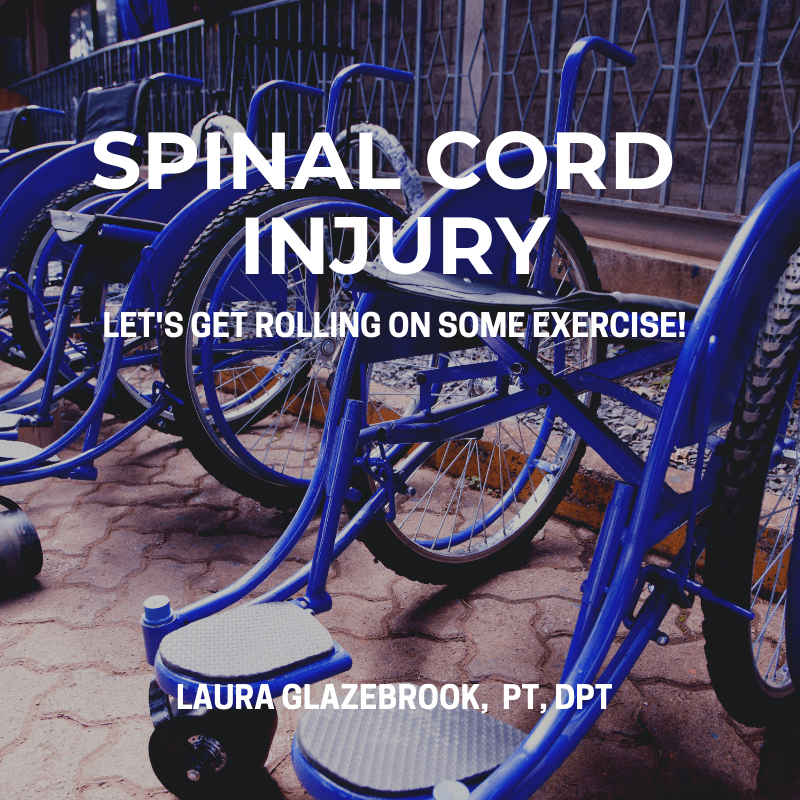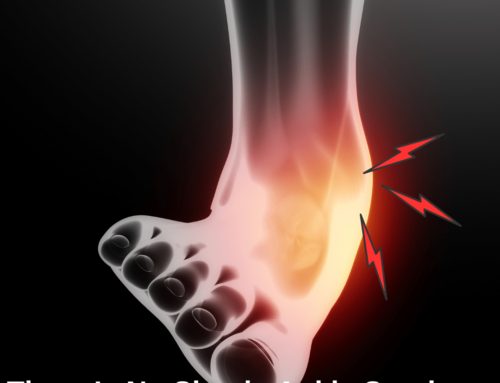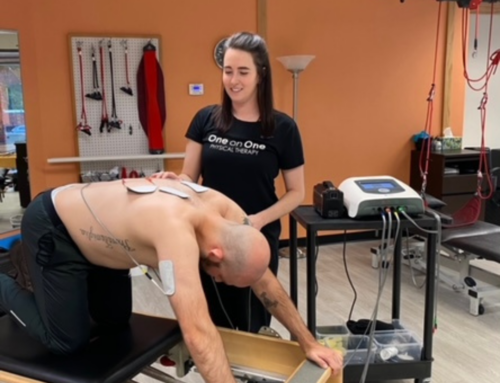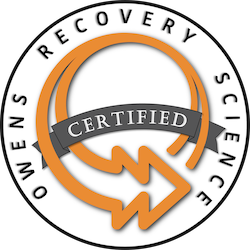Spinal Cord Injury: How PTs Can Help

The Many Faces of Spinal Cord Injury
Spinal cord injury, or SCI, is defined as damage to the spinal cord causing temporary or permanent changes in its function. The spinal cord is a wonderfully complex structure, which controls so many things in our bodies, and an injury can vary widely based on where the injury occurred. Cervical spinal cord injuries typically affect a larger proportion of the body, which can include arm function, thoracic typically the trunk muscles and lumbar affects the legs. Even within that framework, there is a lot of variation based on the area of the spinal cord that was impacted and whether the injury was complete (permanent damage to an area) or incomplete (partial damage). The most recent data from the National Spinal Cord Injury Database states there are currently around 288,000 people in the US living with SCI, with an additional 17,700 new injuries each year.
Possible Effects of Spinal Cord Injury:
|
|
No two people with an SCI have the same presentation of symptoms. One person with SCI may be able to walk without assistance, some may walk using an assistive device such as a cane or walker while wearing a brace, some may need to use a manual wheelchair and some may use a power wheelchair. Although many people with injuries have completed rehab in the past, some have not. In many cases, those living with chronic issues have not seen a PT since their initial injury.
Life After Inpatient Rehab
People living with SCI do not typically seek additional therapies after being discharged from their initial therapy stay. Often, even those who do an outpatient course initially are unaware that they may need occasional “check-ups” by a PT to assess existing level of function and correct postural asymmetries. Periodic reassessments can help to prevent regressions, update physical activity recommendations and exercise programs to ensure an individual is maintaining optimal health and wellness.
How Physical Therapy Can Help
A Neurological Physical Therapist (PT) has special training on how neurological injuries can affect the body, sot they typically have a greater understanding of the complexities of muscle tone, need for adaptive equipment including wheelchairs, and specialized education on secondary complications that can follow an SCI. The PTs at One on One PT will perform a comprehensive evaluation, including a detailed history, to create an individualized treatment plan for you that may include:
- Family or caregiver education
- Balance and mobility training
- Assessment for bracing
- Bowel and bladder education
- Developing or updating adaptive exercise programs
- Strategies for pain relief
Regardless of the length of time since the injury, it is important to get intermittent evaluations by a physical therapist to optimize function, update exercise programs, and improve the efficiency of movement patterns. Staying active can vastly improve one’s quality of life, and has been shown to improve cardiometabolic function in individuals with SCI, even those living with chronic injuries. Research in 2015 suggested that exercise in those with SCI has a neuroprotective effect that decreases pain.
Why One on One PT?
Sometimes after your in-patient therapy stay, there are still goals to work on. Many in-network outpatient PT clinics have to see multiple patients in an hour, decreasing the amount of individualized time you spend with your PT. At One on One Physical Therapy, we are unique in that you spend an uninterrupted 60 minutes working together with your neuro PT to meet your goals. We have specialty equipment including Pilates apparatus and Redcord Professional Workstations to activate your muscles, all which compliment our manual therapy skills and exercise prescription.
In the state of Georgia, you do not need a prescription from a physician to see a PT for an initial evaluation. If at the time of evaluation, it is determined physical therapy is warranted, your PT can contact the doctor’s office with the plan of care and get a prescription for you.
If you, or someone you know, are coping with the effects of a spinal cord injury, contact One on One Physical Therapy to schedule a physical therapy evaluation, or email laurag@onetherapy.com for more information.






